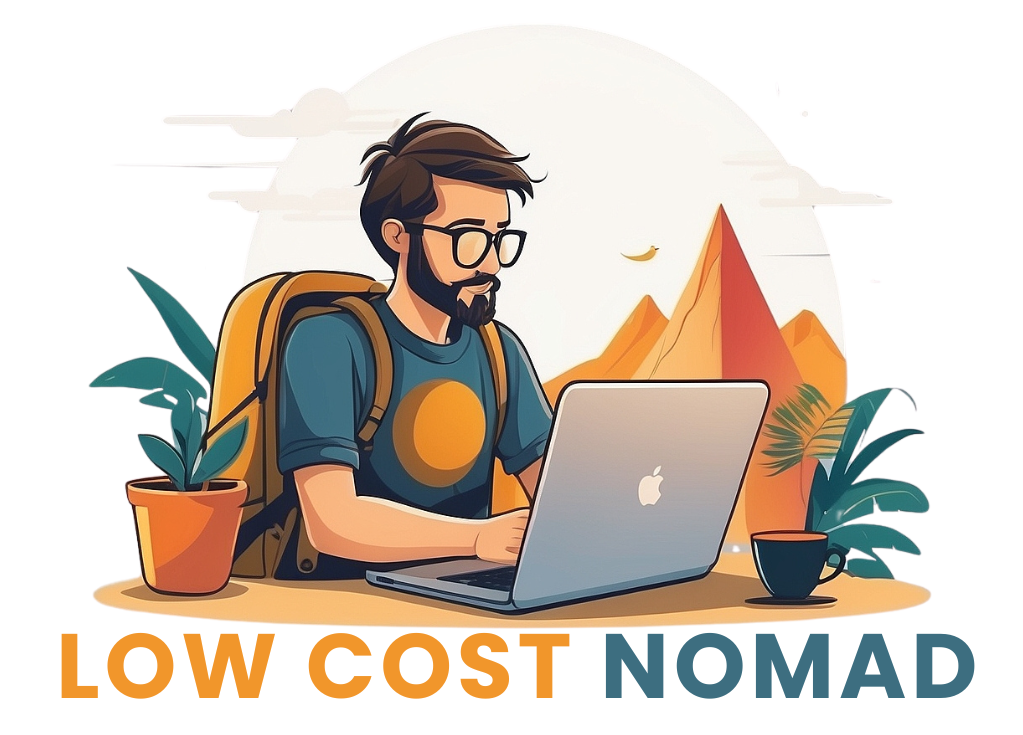What is Digital Nomad Salary? Your Guide to Earning While Traveling
Imagine working from a beach in Thailand, a cafe in Paris, or a cozy cabin in the mountains. This is the dream lifestyle of a digital nomad. These are people who use technology to work remotely, allowing them to live and travel anywhere in the world. But if they don’t have a traditional office job, what is digital nomad salary like? Is it a lot? Is it always the same? This is one of the most common questions people ask about this lifestyle.
The simple answer is: there isn’t one single “digital nomad salary.” It’s not like a fixed paycheck you get every two weeks from a regular company where everyone doing the same job earns roughly the same. The income of a digital nomad can vary *a lot*. Think of it like asking “What is the salary of a person living in a city?” It depends entirely on what job they do, how skilled they are, who they work for, and many other things. The same is true for digital nomads.
In this article, we’re going to explore what determines the income of someone living this mobile lifestyle. We’ll look at the different ways digital nomads earn money and the many factors that make their income go up or down. By the end, you’ll understand why there’s no easy answer to the question “What is digital nomad salary?” but you’ll have a much clearer picture of the possibilities and realities.
Understanding What a Digital Nomad Is (Briefly)
Before we dive into the money part, let’s quickly make sure we’re all on the same page about what a digital nomad is. A digital nomad is someone who earns their living online, using digital tools like laptops, smartphones, and the internet. Because their work isn’t tied to a specific physical location, they are free to travel continuously or live in different places for extended periods. They might work from co-working spaces, cafes, libraries, or even just their rented apartment or hotel room. The key is the location independence enabled by their work.
This is different from someone who just works from home sometimes, or someone who travels for short vacations. Digital nomads often live this way as their primary lifestyle for months or years.
Why There Isn’t Just One “Digital Nomad Salary”
Okay, back to the money. Why is it so hard to give a single number for a digital nomad’s income? Here are the main reasons:
- Different Jobs: Just like in the regular world, different jobs pay different amounts. A digital nomad could be a high-level software engineer, a graphic designer, a writer, an online tutor, a virtual assistant, or running their own online business. The pay for these jobs varies hugely.
- Different Ways of Working: Some digital nomads are remote employees, working full-time for a single company just like office workers, but from a different location. Others are freelancers, taking on projects from many different clients. Some run their own businesses – selling products online, creating courses, or offering services. Each of these models has a different income structure and level of stability.
- Different Skill Levels: An entry-level virtual assistant with basic skills will earn much less than a senior marketing consultant with years of experience and specialized knowledge. Experience and expertise directly impact earning potential in the digital nomad world, just as they do elsewhere.
- Where Clients Are Located: A freelancer in Argentina might earn more by working for clients in the United States or Europe, where rates are higher, than by working for local clients. The economy and average pay rates of the client’s location play a big role, even if the digital nomad is living somewhere else.
- How Much They Work: Some digital nomads work 40+ hours a week consistently. Others might work part-time or only take on projects when they need money or when interesting work comes up. Less work usually means less income.
- Their Business Success: If a digital nomad runs their own online store or blog, their income depends entirely on how well that business performs. This can range from very little to a lot.
So, instead of thinking about a single “digital nomad salary,” it’s much more accurate to think about the *range* of possible incomes and the *factors* that influence where a particular digital nomad falls within that range.
Factors That Influence Digital Nomad Income
Let’s break down the main things that determine how much a digital nomad earns. Understanding these factors is key to understanding the “digital nomad salary” question.
1. The Type of Work or Niche
What a digital nomad *does* for work is probably the biggest factor in their earning potential. Some fields naturally pay more than others. Here are some examples:
- Tech & Development: Web developers, software engineers, data scientists, cybersecurity experts – these roles are often in high demand and can command high rates or salaries, just like in traditional jobs. A skilled remote developer can easily earn $60,000 to $150,000+ per year, depending on their experience and specialization.
- Digital Marketing & SEO: Experts in search engine optimization (SEO), content marketing, paid advertising (like Facebook or Google Ads), and social media strategy are valuable. Income can range widely, perhaps $40,000 to $100,000+ depending on results and client size.
- Design & Creative: Graphic designers, web designers, UI/UX designers, video editors, photographers. Pay varies based on skill, portfolio, and client type. Rates could lead to incomes from $35,000 to $80,000+. High-end specialists earn more.
- Writing & Content Creation: Copywriters, content writers, technical writers, bloggers. Pay depends heavily on quality, speed, niche (medical or technical writing pays more than general blogging), and client. Income could be $30,000 to $70,000+, but can go higher for top copywriters or niche experts.
- Virtual Assistance & Administration: Providing administrative, technical, or creative assistance remotely. This is often an entry point into the digital nomad lifestyle. Pay rates are typically lower, perhaps leading to an income of $25,000 to $50,000 per year.
- Online Tutoring & Education: Teaching languages, subjects, or skills online. Pay per hour can vary significantly ($15/hour to $50+/hour), affecting total income based on hours worked.
- Running an Online Business: E-commerce stores, selling digital products (like e-books or courses), affiliate marketing, creating software-as-a-service (SaaS). The income here is the most variable – it could be very low initially, or grow to be very high if the business is successful. There’s no limit, but also no guarantee.
As you can see, the difference between a virtual assistant’s potential income and a senior software engineer’s potential income is huge. This is a major part of the “what is digital nomad salary?” puzzle.
2. Skill Level and Experience
This is straightforward. Someone who is just starting out in any field will generally earn less than someone with years of experience, a strong track record, and advanced skills. A junior graphic designer earns less than a senior art director. A beginner writer earns less per word or per hour than an experienced copywriter who gets results for clients.
Digital nomads who invest in learning new skills, specializing in a high-demand area, and building a strong portfolio can significantly increase their earning potential over time.
3. How They Structure Their Work (Employee vs. Freelancer vs. Business Owner)
- Remote Employee: If a digital nomad works as a full-time remote employee for a company (often based in a country with a strong economy), they usually have a fixed salary, similar benefits to traditional employees (though maybe adjusted), and more income stability. The “digital nomad salary” in this case is simply their remote job salary.
- Freelancer: Freelancers are self-employed. They get paid per project, per hour, or sometimes on retainer. Their income can vary greatly from month to month depending on how many clients they have, how much work is available, and how good they are at finding and keeping clients. There’s less income stability, but potentially higher hourly rates or more control.
- Business Owner: Running an online business (e-commerce, blog, course sales, etc.) offers the most potential for high income, but also the most risk and work, especially at the start. Income is directly tied to the business’s performance.
Someone asking “What is digital nomad salary?” needs to understand which of these categories the person falls into, as it heavily impacts their income stability and potential.
4. Location (Affects Spending Power and Sometimes Rates)
While digital nomads earn online, *where* they choose to live greatly affects their financial life. This is often called **geoarbitrage**. It means earning money based on the rates of a higher-paying country (like the US, UK, or Western Europe) and spending that money in a country where the cost of living is much lower (like parts of Southeast Asia, Eastern Europe, or Latin America).
For example, earning $50,000 per year might make for a very average or even difficult life in New York City. But that same $50,000 income could provide a very comfortable, even luxurious, lifestyle in Chiang Mai, Thailand, or Medellin, Colombia, where rent, food, and transportation cost much less.
So, even if two digital nomads have the exact same income number, their actual “digital nomad salary” *lifestyle* could be vastly different depending on where they choose to live. This is a critical point that the single number “salary” doesn’t capture.
In some cases, a digital nomad’s rate might also be influenced by where they are *currently* located, especially if they are working with clients from that region. However, for most, the key is earning global rates while spending local prices.
5. Number of Clients and Quality of Clients (for Freelancers/Business Owners)
A freelancer with one small client will earn much less than a freelancer with several large, high-paying clients. Building a strong client base is essential for stable and higher income as a freelance digital nomad.
For business owners, the number of customers and the value of each customer directly impacts revenue and profit.
6. Hours Worked
This might seem obvious, but it’s worth mentioning. A digital nomad working 20 hours a week will likely earn less than one working 40 hours a week, assuming similar pay rates or job types. The flexibility to control your hours is a benefit, but it directly impacts the total income number.
Examples of Digital Nomad Jobs and Potential Income Ranges
Let’s look at some common digital nomad jobs and give very rough, example income ranges. Remember, these are just estimates and can vary wildly based on the factors we just discussed (skill, experience, clients, hours, etc.). These are annual income estimates in US dollars for someone working reasonably consistently.
- Virtual Assistant: $20,000 – $50,000 per year. Often starts lower, increases with experience and specialized tasks.
- Content Writer: $30,000 – $70,000 per year. Niche writers, copywriters, and those with strong portfolios can earn significantly more.
- Social Media Manager: $30,000 – $70,000 per year. Managing larger accounts or running paid ad campaigns increases value.
- Graphic Designer: $35,000 – $80,000 per year. Highly skilled or specialized designers (like UI/UX) earn more. Portfolio quality is key.
- Web Developer (Front-end/Back-end): $40,000 – $120,000+ per year. This is a high-demand field. Senior developers with specialized skills can earn $150,000+.
- Online Tutor/Teacher: $20 – $50+ per hour. Total income depends on hours taught. Can range from part-time supplement to full-time income.
- E-commerce Store Owner: Highly variable. Can be $0 (or even a loss) in the beginning, to $50,000, $100,000, or much, much more per year if successful.
- Blogger/Affiliate Marketer: Highly variable. Can take a long time to earn anything significant. Successful bloggers can earn from a few thousand to hundreds of thousands per year through ads, affiliate sales, and selling their own products.
This list isn’t exhaustive, but it gives you a sense of the range. The “digital nomad salary” is really a spectrum, not a single point.
How Digital Nomads Get Paid
Since they aren’t working in a traditional office with a standard payroll system, how do digital nomads actually receive their money?
Common methods include:
- Bank Transfers: Direct transfers from clients or employers, though international transfers can sometimes be slow and have high fees.
- Payment Platforms: Services like PayPal, Stripe, or TransferWise (now Wise) are very popular. They make sending and receiving international payments easier and often cheaper than traditional banks. Wise, for example, allows you to have bank details in multiple currencies and transfer money between them at good exchange rates.
- Payoneer: Another popular platform designed for freelancers and businesses to send and receive global payments.
- Specific Job Platforms: Websites like Upwork or Fiverr handle payments directly through their platform, taking a fee but simplifying billing.
- Cryptocurrency: Some forward-thinking clients or employers might pay in Bitcoin or other cryptocurrencies, though this is less common for regular income.
Managing money across borders, dealing with different currencies, and handling transaction fees are all part of the financial side of being a digital nomad.
It’s Not Just Income: Consider Expenses Too
When talking about “what is digital nomad salary,” it’s easy to focus only on the money coming in. But the money going out is just as important, and the expenses of a digital nomad can be different from someone living in one place.
Typical digital nomad expenses include:
- Accommodation: Renting apartments or staying in hotels/hostels in different locations. This can vary greatly depending on the country and type of accommodation.
- Travel Costs: Flights, trains, buses, visas. Moving around is a core expense.
- Health Insurance: Crucial, but often more complex and potentially expensive than standard national health insurance or employer plans when traveling internationally.
- Food & Daily Living: Groceries, eating out, transportation within a city. Again, varies hugely by location.
- Co-working Spaces: Many nomads pay for access to shared workspaces with reliable internet and community.
- Technology: Laptops, phones, software subscriptions, reliable internet access.
- Taxes: This is a complex area. Digital nomads need to figure out where they owe taxes, which can depend on their nationality, residency, and where their clients/income are based. It’s crucial to get professional advice.
Sometimes, a digital nomad with a moderate income but low expenses in a cheap location might have more disposable income and a higher quality of life than a digital nomad with a higher income living in an expensive city.
Is a High “Salary” Always the Goal?
For many digital nomads, the primary goal isn’t necessarily to earn the highest possible “salary” in the traditional sense. While earning enough to live comfortably is important, the freedom, flexibility, travel experiences, and personal growth that the lifestyle offers are often the main motivators.
Some digital nomads prioritize living in beautiful or interesting locations, even if it means earning less than they might in their home country. Others focus on working fewer hours to have more time for exploring or personal projects. The value they get isn’t just monetary.
So, when considering “what is digital nomad salary,” remember it’s part of a larger picture that includes lifestyle choices, personal values, and financial goals that might be different from a traditional career path.
Tips for Increasing Your Digital Nomad Income
If a digital nomad wants to earn more, what can they do? Here are some strategies:
- Improve Your Skills: Learn new technologies, get certifications, become an expert in a high-demand niche.
- Build a Strong Portfolio: Showcase your best work to attract better clients and justify higher rates.
- Network: Connect with other professionals and potential clients online and in person (at co-working spaces, nomad meetups). Referrals are powerful.
- Raise Your Rates: As you gain experience and skills, don’t be afraid to charge more for your services.
- Find Better Clients/Employers: Target clients or companies in countries or industries that pay more.
- Specialize: Instead of being a generalist, become an expert in a specific area (e.g., not just a writer, but a technical SEO writer for SaaS companies). Specialists can often charge more.
- Create Passive Income Streams: Develop products (courses, e-books, software) or build assets (a popular blog with affiliate links) that can earn money even when you’re not actively working.
- Manage Your Money Well: Track expenses, budget effectively, save for taxes and emergencies. Earning a decent income isn’t enough if you can’t manage it.
Conclusion: The Variable World of Digital Nomad Income
So, after exploring all these factors, we can firmly say there is no single answer to the question “What is digital nomad salary?” It’s a complex mix of job type, skills, experience, how work is structured (employee, freelancer, business owner), where they choose to live, and how much they work.
Instead of a fixed salary, a digital nomad’s income is often variable, sometimes inconsistent, but potentially very rewarding. Some digital nomads earn modest amounts, enough to live simply in low-cost countries. Others, particularly those in high-skill fields or with successful online businesses, earn six figures or more, allowing for a very comfortable or even wealthy lifestyle anywhere in the world.
The key takeaway is that the income potential for a digital nomad is largely determined by their own skills, effort, and strategic choices. The digital nomad lifestyle is less about a guaranteed paycheck and more about creating your own way of earning a living that supports your desired level of freedom and travel. Understanding the factors that influence digital nomad income is the first step for anyone considering this exciting, but often financially unpredictable, path.




